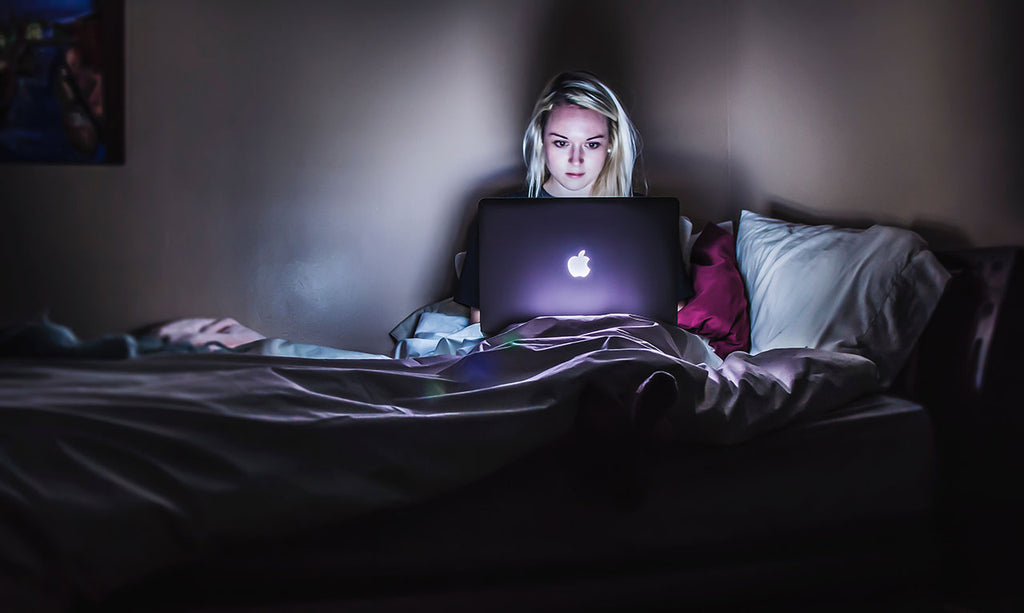Does Screen Time Disrupt Sleep?
Why screen time can affect your sleep.

Before we get into how blue light can make it more difficult to get a good night’s sleep, let’s take a quick look at what blue light actually is.
Blue light is a segment of the visible light spectrum responsible for keeping you alert. It’s naturally present in sunlight, but is also concentrated in the light that comes out of the LED screens on the digital devices you use – phones, tablets and laptops.

Most of today’s electronic devices have LED back-lit screens to enhance brightness and color resolution. However, LED lights emit strong high-energy visible light waves, exposing us to more artificial sources of blue light than ever before.
Want to protect your eyes from screens?
Shop LUMES blue light blocking glassesThe effects of blue light on sleep

Inhibits melatonin production: Blue light tells our body when we need to be awake - at sunrise for example. However, when we are exposed to artificial blue light it can affect our physiology in unnatural ways. Studies show that looking at screens can interfere with the production of melatonin, the chemical responsible for helping you sleep.
Disrupts circadian rhythm: Daylight keeps a person's internal clock (aka circadian rhythm) aligned with the environment. However, in today’s world we are subjected to more artificial sources of blue light than ever before. This can disrupt our natural circadian rhythm and make it more difficult to fall asleep at a regular time each night.
Using digital devices at night doesn’t help: Using your smartphone or laptop at night? While light of any kind can suppress the secretion of melatonin, blue light at night does so more powerfully. Harvard researchers and their colleagues conducted an experiment comparing the effects of 6.5 hours of exposure to blue light to exposure to green light of comparable brightness. The study found that blue light suppresses melatonin for about twice as long as the green light and shifted circadian rhythms by twice as much (3 hours vs. 1.5 hours).
How can you have a healthy sleep pattern when you use technology?

Studies show that blue light blocking lenses can help you maintain a normal circadian rhythm, and help you get better quality sleep.
According to Vivien Bromundt, the co-author of the study: “The short-wavelength photoreceptors in the eye which respond to blue light act to reset the timing of the internal clock, suppress melatonin production, improve alertness and performance, and elevate brain activation.”
That’s why wearing blue light blocking glasses to reduce your exposure to blue light in the evening can allow your brain to slow down and prepare for sleep.
LUMES can help you get a better night’s sleep
LUMES blue light blocking glasses are specially engineered to filter out high intensity blue light up to 420 nm and reduce glare. The lenses are virtually clear which means color perception is not noticeably affected. They can help your eyes feel more relaxed, protect your long-term vision and also improve your sleep schedule.

